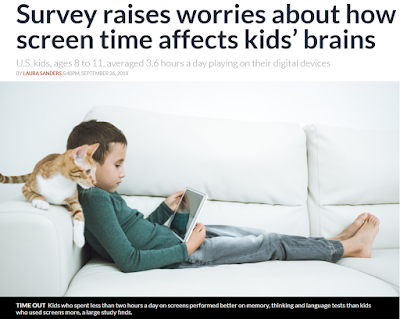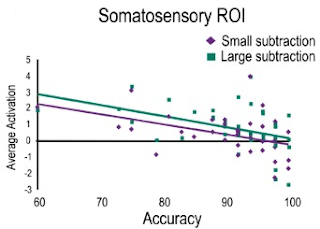Should We Worry About Our Children's Screen Time?

Earlier this month, this blog talked about the increased use of social media by teenagers in the United States over the past six years. A recent news article in Science adds to this concern. Citing a study published in the journal T he Lancet: Child & Adolescent Health , ScienceNews reports that children 8-11 years old in the United States are now on average in front of a smart screen for 3.6 hours a day. Above copied from ScienceNews It is indeed a matter of concern if a large chunk of a child's waking hours are now spent in front of a screen. The study also shows that only 1 in 3 children aged 8-11 years uses the screen for less than two hours. Clearly, some other childhood activity is losing time. The report also looks at physical activity and only about 1 in 5 children in this age group perform the recommended 60 minute physical activity per day. On the sleep recommendation, at least half of the children are still able to sleep 9 to 11 hours per day. Homework has a...





